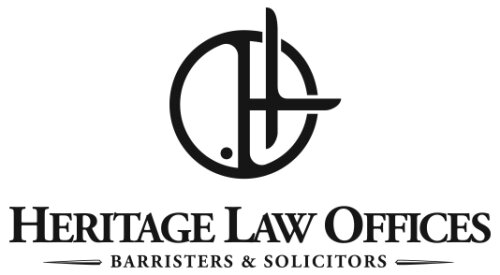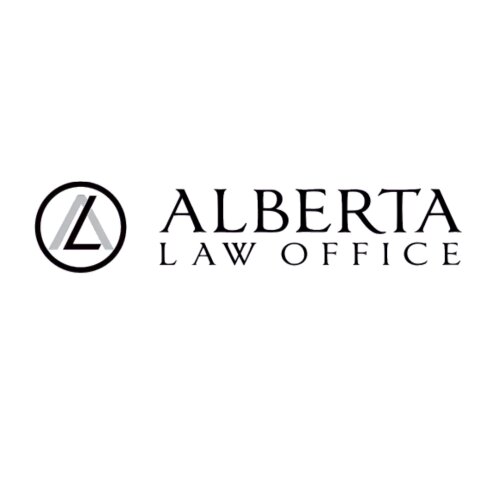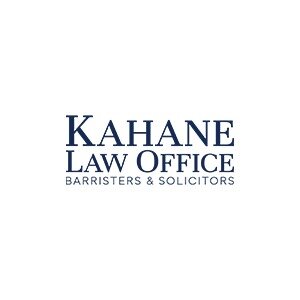Best General Litigation Lawyers in Edmonton
Share your needs with us, get contacted by law firms.
Free. Takes 2 min.
List of the best lawyers in Edmonton, Canada
Canada General Litigation Legal Articles
Browse our 1 legal article about General Litigation in Canada written by expert lawyers.
- How to Claim Personal Injury Damages in Ontario Canada
- Victims have two years from the date of the accident to initiate a lawsuit against the at-fault driver in Ontario. Ontario uses a hybrid system where you receive immediate "no-fault" benefits regardless of who caused the crash, while also retaining the right to sue for additional damages. To successfully sue... Read more →
About Litigation Law in Edmonton, Canada
Litigation law in Edmonton, Canada refers to the rules and practices involved in resolving disputes in the court system. These can range from contractual disputes, personal injury cases, probate disputes, employment matters, and more. In Edmonton, as with the rest of Canada, the litigation process involves initial consultations, claim preparations, their filing, defense responses, hearings, and potential settlement discussions or trial.
Why You May Need a Lawyer
There are several situations where you might require legal help in Litigation. If you are facing a lawsuit or thinking of filing a case, a litigation lawyer can guide you through the legal process. Whether it's negotiating a settlement, preparing for court or advocating for you in court, the expertise of a litigation lawyer can be invaluable. Given the complexity of litigation rules and procedures, having a lawyer on your side can ensure your rights are protected.
Local Laws Overview
In Edmonton, local laws related to litigation are governed by the Alberta Rules of Court. These establish the procedures that must be followed when engaging in civil litigation, such as procedures for filing and responding to claims, discovery and evidence rules, and trial processes. For disputes under $50,000 in value, a simplified and faster process is in place under the Civil Claims Act. There are also specific rules that are unique to Edmonton, such as mandatory dispute resolution before a trial can be scheduled.
Frequently Asked Questions
What cases fall under litigation?
Litigation covers a wide array of case types, including contractual disputes, real estate disputes, personal injury cases, family disputes, probate disputes, and employment issues among others.
How long does a litigation process take?
The timeframe for litigation can vary significantly depending on the nature of the case. Some may conclude within a few months, while others may extend several years, especially if it proceeds to trial.
What is the role of a litigation lawyer?
A litigation lawyer provides advice on your legal rights and options, guides you through the litigation process, prepares required documents, represents you in court, and negotiates settlements on your behalf.
Do I always have to go to court in litigation?
No, not all cases need to go to court. Many can be resolved outside of court through negotiation, mediation or arbitration. A litigation lawyer can help facilitate these alternative dispute resolution methods.
How do costs work in litigation?
In general, the unsuccessful party in litigation is typically ordered to pay a portion of the successful party's legal costs. However, the allocation of legal fees depends on many factors, including each party's behavior during litigation.
Additional Resources
For additional resources, you may refer to the Law Society of Alberta's website which provides a wealth of resources for understanding the laws of the province. The website of The Courts of the Province of Alberta also contains useful information about court procedures. Legal Aid Alberta may provide support if you are financially eligible.
Next Steps
If you require legal assistance in litigation, your next step should be to seek legal advice. Consider consulting with a litigation lawyer to understand your options and the potential course of action. Remember that each litigation case is unique and should be treated on an individual basis. Never hesitate to seek professional legal help when needed as the litigation process can be complex and long.
Lawzana helps you find the best lawyers and law firms in Edmonton through a curated and pre-screened list of qualified legal professionals. Our platform offers rankings and detailed profiles of attorneys and law firms, allowing you to compare based on practice areas, including General Litigation, experience, and client feedback.
Each profile includes a description of the firm's areas of practice, client reviews, team members and partners, year of establishment, spoken languages, office locations, contact information, social media presence, and any published articles or resources. Most firms on our platform speak English and are experienced in both local and international legal matters.
Get a quote from top-rated law firms in Edmonton, Canada — quickly, securely, and without unnecessary hassle.
Disclaimer:
The information provided on this page is for general informational purposes only and does not constitute legal advice. While we strive to ensure the accuracy and relevance of the content, legal information may change over time, and interpretations of the law can vary. You should always consult with a qualified legal professional for advice specific to your situation.
We disclaim all liability for actions taken or not taken based on the content of this page. If you believe any information is incorrect or outdated, please contact us, and we will review and update it where appropriate.













